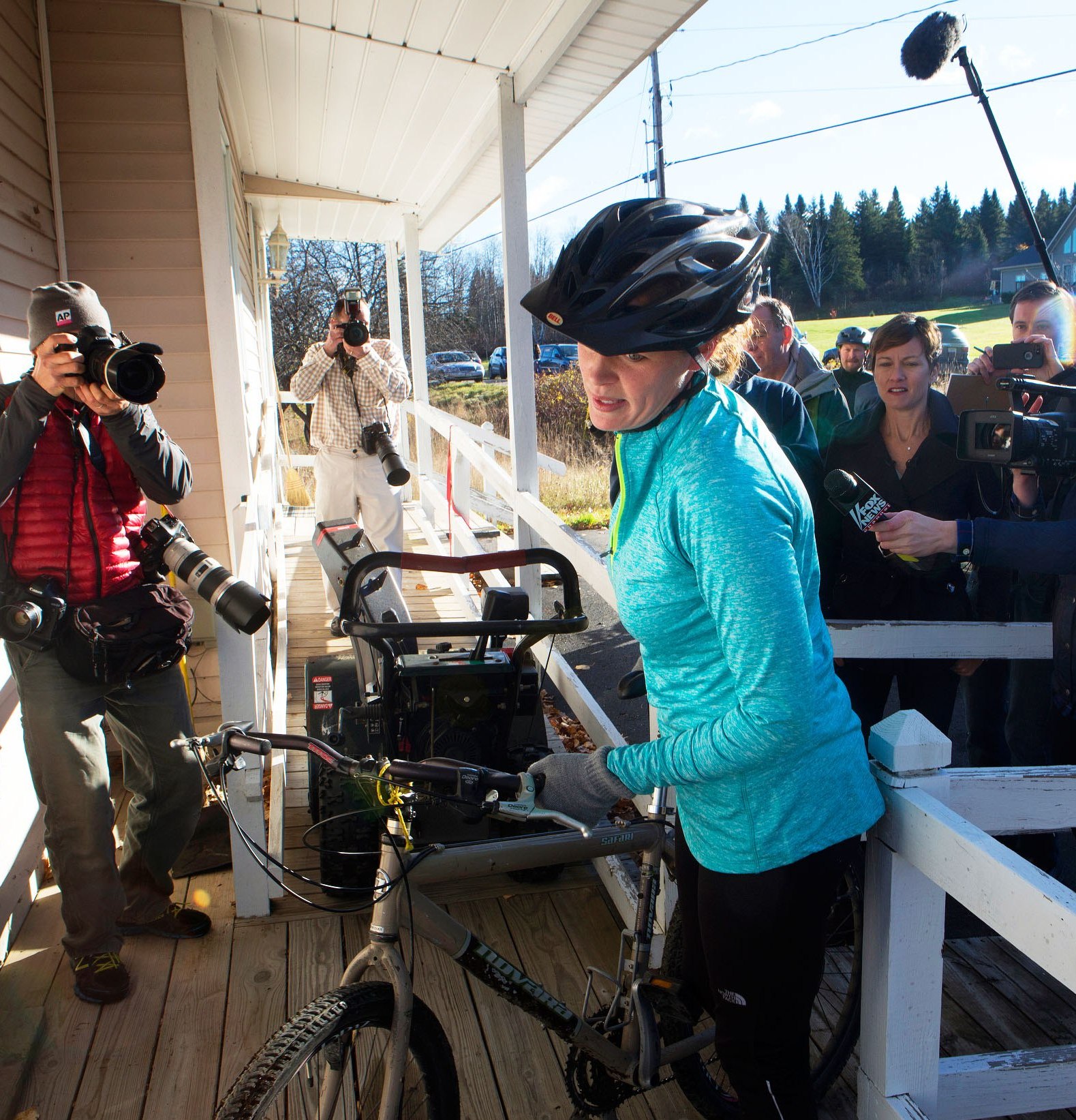In U.S. Ebola fight, no two quarantines are quite alike
In the U.S. battle against Ebola, quarantine rules depend on your zip code. For some, like nurse Kaci Hickox, who defiantly left her house and went on a bike ride Thursday with her boyfriend, it may feel like imprisonment. For others, it may be more like a stressful staycation. A month after the first confirmed case of Ebola in the United States, state and local health authorities across the country have imposed a hodgepodge of often conflicting rules. Some states, such as New York and New Jersey, have gone as far as quarantining all healthy people returning from working with Ebola patients in West Africa. Others, such as Virginia and Maryland, said they will monitor returning health care workers and only quarantine those who had unprotected contact with patients.
This [is] an overly extreme and nonevidence-based policy. There’s no reason to have policies with that level of detail because there’s no risk.
Anthony Harris, an infectious disease expert at the University of Maryland School of Medicine
The smaller details – ranging from how groceries are delivered to who can visit – differ by state and even by city. The Centers for Disease Control and Prevention has tried to establish a national standard, recommending on Monday that only people who had direct contact with Ebola patients without any protective gear submit to isolation at home for 21 days, the maximum period for symptoms to develop. They would still be allowed to go outside on a jog or to walk their dogs, but cannot come within three feet of others or visit places with groups of people, such as a restaurant.

Americas Ebola quarantine